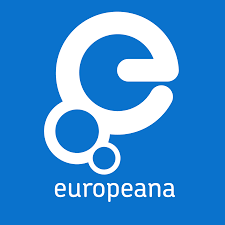Welcome to my blog,
This blog is part of our study. This Thinking activity is based on Digital Humanities and was assigned by Dr. Dilip Barad sir Department of English MKBU.In this task, we have to discuss Deconstruction.
What is Digital Humanities?
Digital humanities is an academic discipline that explores the intersection between digital technologies and culture. It emerged from the humanities, which study aspects of human society, and include well-known popular subjects, like history, philosophy, literature and modern languages.
As a new and emerging field, digital humanities aims to open up new areas for research in these subjects and to explore traditional questions in a different way. For students, this could mean looking at culture, language or history through a digital lense; or using computer skills to better analyse and understand humanities data.
Digital humanities has grown in popularity in recent years, and while not every academic is convinced it is worth the hype - or that digital tools actually provide the best insight into humanities topics -, it is only likely to become a more relevant field in an increasingly digital world.
Key aspects of Digital Humanities include:(Chat GPT)
Digitization: Converting analog content (e.g., manuscripts, books, artwork) into digital formats, making them accessible for preservation, analysis, and dissemination.
Data Analysis: Using computational methods to analyze large datasets, allowing researchers to uncover patterns, trends, and insights that might be difficult to identify through traditional methods.
Text Mining: Applying natural language processing and text analysis techniques to study and extract information from large collections of texts.
Visualization: Creating visual representations of data and information to aid in understanding complex relationships and patterns.
What is done under Digital Humanities:(Chat GPT)
Text Analysis and Text Mining: Researchers use computational tools and techniques to analyze large volumes of text, identifying patterns, trends, and relationships. This might involve sentiment analysis, topic modeling, named entity recognition, and more.
Digitization and Archives: Cultural artifacts, historical documents, manuscripts, books, and artworks are digitized to preserve and provide wider access. Digital archives are created to house and organize these digitized materials.
Data Visualization: Complex data is visualized using charts, graphs, maps, and other visual representations to make patterns and insights more accessible and understandable.
Mapping and Geospatial Analysis: Geographic information systems (GIS) are used to map historical and cultural data, allowing researchers to explore spatial relationships and changes over time.
Network Analysis: Researchers analyze networks (e.g., social networks, intellectual networks) to study relationships and connections between individuals, ideas, and cultural artifacts.
Linguistic Analysis: Digital tools are used to study linguistic patterns, changes in language over time, and variations across different contexts and regions.
Cultural Heritage Preservation: Digital technologies are employed to preserve and restore cultural heritage sites, artifacts, and traditions, often through virtual reconstructions or 3D models.
Collaborative Projects: Scholars from diverse disciplines collaborate on research projects that bring together expertise in both humanities and technology. These collaborations often result in innovative research outcomes.
Educational Resources: Digital Humanities projects create educational materials, online courses, and interactive platforms that engage students and the public with cultural and historical topics.
Public Engagement and Outreach: Digital Humanities projects often involve creating websites, exhibitions, and interactive installations that allow the general public to explore and engage with cultural and historical content.
Stylometric Analysis: Researchers analyze writing styles and linguistic features to attribute authorship, detect plagiarism, and study the evolution of writing styles.
Data Curation: Curating and managing large datasets, ensuring their quality, organization, and accessibility for researchers and the public.
Time-Based Media Analysis: Analyzing audio, video, and multimedia content using digital tools to study narratives, visual storytelling, and cultural representations.
Ethical Considerations: Digital Humanities scholars also engage in discussions about ethical considerations, including issues related to data privacy, cultural sensitivity, and representation.
Experimentation with New Technologies: Exploring emerging technologies such as virtual reality, augmented reality, and artificial intelligence to create new ways of experiencing and interpreting cultural artifacts.
Digital humanities projects:
Digital Public Library of America (DPLA):
DPLA offers access to millions of photographs, manuscripts, books, and more held by libraries, archives, and museums across the United States. Digital Public Library of America (DPLA) is a digital platform that provides free and open access to a vast collection of cultural heritage materials from libraries, archives, museums, and cultural institutions across the United States. The DPLA was launched in April 2013 with the aim of bringing together the diverse digitized collections of American institutions and making them easily accessible to the public.
Project Link: https://dp.la/
The Programming Historian:
The Programming Historian is an open-access online resource that offers tutorials and lessons aimed at helping historians and humanists learn digital tools, programming languages, and computational methods for conducting research, analyzing data, and creating digital projects. The project was launched in 2008 by a group of scholars in the digital humanities and has since grown to become a widely recognized and valuable resource for those interested in incorporating digital techniques into their research and teaching. While not a single project, this is a collection of tutorials aimed at helping historians and humanists learn programming and digital tools for their research.
Europeana:
Europeana is a digital cultural platform that brings together a wide range of digitized cultural heritage materials from institutions across Europe. Launched in 2008 by the European Commission, Europeana's mission is to make Europe's cultural heritage accessible to everyone, fostering a sense of shared history and culture. The platform provides access to millions of items, including artworks, photographs, manuscripts, books, audio recordings, and more.
Europeana plays a vital role in democratizing access to cultural heritage, enabling researchers, students, educators, and the general public to explore and engage with Europe's rich historical and artistic legacy. The platform continually evolves to include new collections, technologies, and features, making it a dynamic hub for digital cultural exploration.
Thank you for Visiting and Reading...








No comments:
Post a Comment